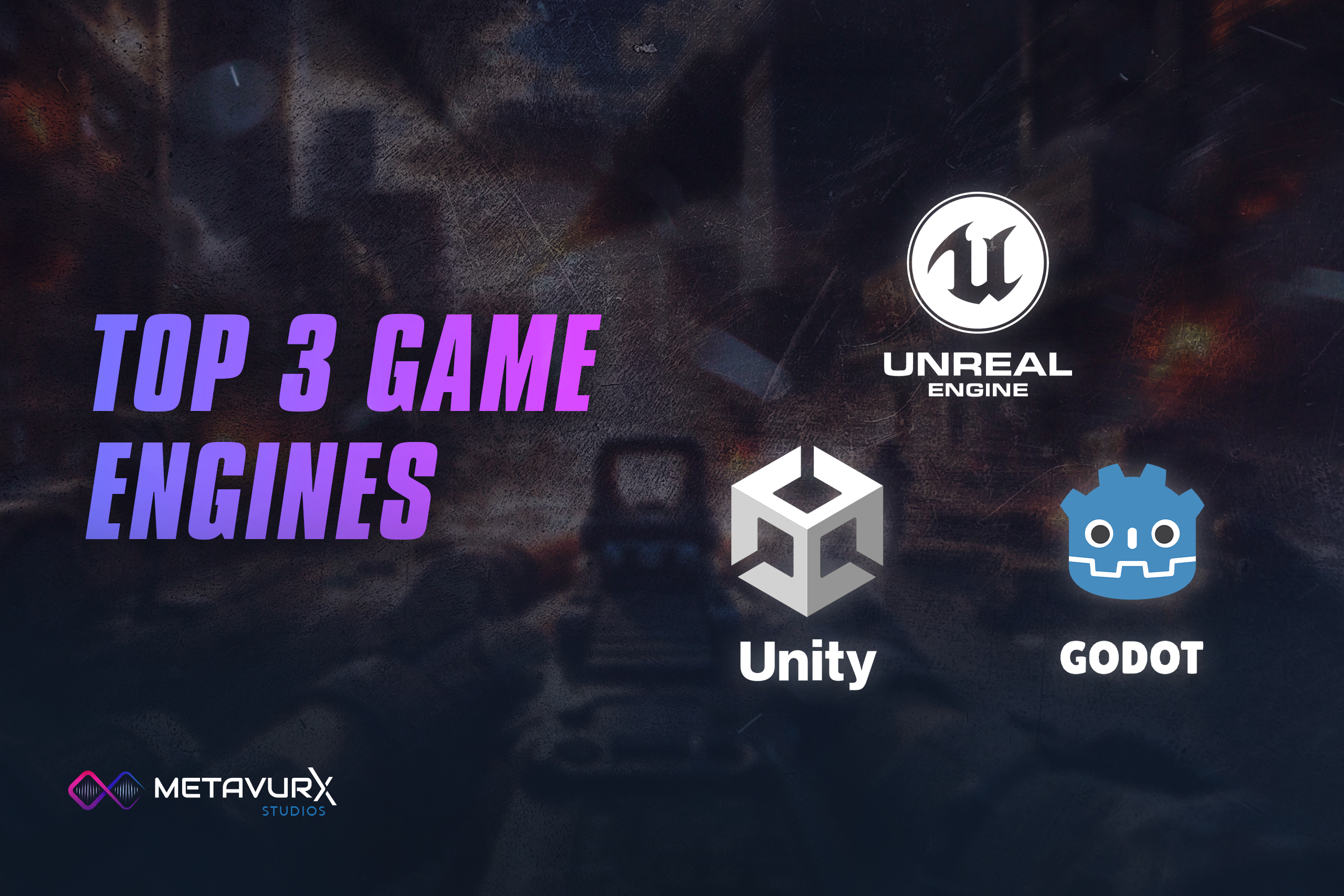Game engines are designed to make creating games easier by giving developers access to necessary features and tools. Among the many functions they provide are sound management, physics simulation, graphics rendering, and scripting skills. Thanks to these engines, developers may now produce 2D and 3D games more successfully and efficiently.
Game engines ease the development process, freeing up developers to concentrate on originality and creativity. Ultimately, the project’s need, the development team’s level of experience, and the intended platform will determine which game engine suits best.
Top 3 Game Engines to Choose for Your Game
The success of any game development project depends on your choice of game engine. With so many options available, it’s critical to understand each engine’s benefits and drawbacks. We’ll look at the best gaming engines here and help you find the one that works best for your project.
1. Unreal Engine
Epic Games’ Unreal Engine is well-known for its strong performance and high-fidelity graphics. It provides powerful tools for creating 2D and 3D video games, featuring a Blueprint visual scripting system that eliminates the need for coding intricate gameplay features. In AAA game production, Unreal Engine is widely utilized and offers comprehensive support for VR and AR applications.
In addition, it is being used for film productions, visual effects, and virtual productions. Although its extensive documentation and vast community aid beginners, less experienced developers may feel overwhelmed by the complexity. Unreal Engine is perfect for video games that demand complex gameplay and excellent graphics.
2. Unity
Unity is a popular and functional game engine that allows for the construction of 2D, 3D, VR, and AR applications. Just like Unreal Engine, it is also used for films, VFX, and virtual productions. Because of its user-friendly UI and large asset store, developers can access extensive resources. Even for those not experienced with programming, learning the C# scripting language is not too difficult.
Unity’s extensive cross-platform features allow deployment across various platforms, including mobile, PC, and console. The huge engine community provides a wealth of guides and assistance. While Unity may need more work to achieve high-end graphics than Unreal Engine, it excels in scalability and adaptability.
The open-source Godot game engine is renowned for its effectiveness and simplicity. It emphasizes usability and provides complete tools for 2D and 3D game development. Because of its user-friendly GDScript language and scene structure, it is accessible to players of all ability levels. Its lightweight architecture enables rapid development cycles and prototyping.
Its open-source structure allows the flexibility to alter the engine’s source code to meet particular requirements. Because of its vibrant community, the engine is always being improved, and upgrades and support are guaranteed. Godot may lack some cutting-edge features of popular engines, but it is an excellent choice for indie developers.
Conclusion
Selecting a suitable game engine is essential for creating successful games. Game engines simplify the process of creating 2D and 3D games by offering necessary tools like sound management, physics simulation, graphics rendering, and scripting capabilities. This simplification improves the quality of the finished product by allowing developers to concentrate on creativity.
The project requirements, team expertise, and target platform all play a role in choosing the most suitable engine. AAA games with intricate gameplay and high-fidelity graphics are best suited for the Unreal Engine. Unity’s adaptability and scalability make it ideal for a range of projects, including virtual reality and mobile. Godot is ideal for independent developers and smaller projects because it is straightforward and open-source.
Making an informed decision requires knowing the advantages and disadvantages of each engine. While Unreal Engine excels at high-end graphics, it can be too complex for novices. Although Unity is flexible and easy to use, it may require additional work for high-quality visuals. And Godot is useful for quick prototyping, but it might not have all the functionality you need.
In conclusion, select the best game engine based on project requirements, team experience, and platform to ensure a smoother development process and a successful game launch. Metavurx Studios has industry experience in all these engines, ensuring your projects will use the best engine suitable for it.


